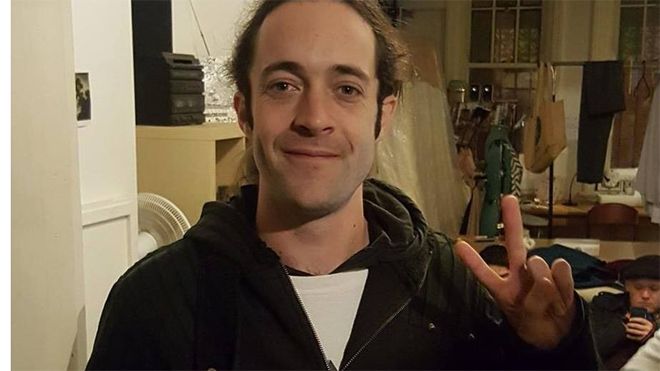The Guy Who Named Himself Meow But Failed to Turn Himself Into a Cyborg


If you were writing a techno-dystopian novel, you’d consider starting with a future where governments required their citizens and domiciliaries to install tracking chips somewhere on their person. In today’s world, though, that’s not happening. In fact, the opposite may be true — in a recent case, the government insisted that a person not install a tracking chip. Just ask the man pictured above. His name is Meow-Ludo Disco Gamma Meow-Meow, and he wanted to be a low-level cyborg but was told no.
(And yes, that’s his legal name. Really.)
Mr. Meow-Meow is a molecular biologist and self-described biohacker who lives in Australia. In 2016, he ran for Parliament as a member of the “Science Party,” a group which describes itself as radical centrists who seek larger investments in emerging technologies while keeping technology as unregulated as possible. They’ve only been around since 2013 and are seen mostly as a fringe party, so it’s no surprise that Meow-Meow lost.
As for his name, well, that’s his own doing. As he told HuffPo Australia, “I thought it would be a really interesting experience to change your name because not many people have that experience. I sat down with a group of friends and made a list of names that sounded fun and then we thought of which ones rolled off the tongue the nicest and we came up with one that we thought was novel and fun and I changed it.” But really, that’s not important to the story.
What is important is the cyborg part.
The Sydney Metro system is run by a government agency called Transport for NSW (pronounced as Transport for New South Wales, apparently), and uses a ticketing system called “Opal.” Wikipedia describes Opal as follows:
The Opal Card is a credit card-sized smartcard which includes a microchip and internal RFID aerial, allowing the smartcard to communicate with readers. The microchip enables value to be loaded onto the card, as well as allowing the journey details to be recorded and the appropriate fare deducted from the stored value on the card. It is designed so that passengers can ‘tap on’ and ‘tap off’ any services whenever they travel through the public transport network.
In other words, you don’t have to swipe the Opal card to get entry into the subway system — you just need to get it close enough to the reader. It’s a frictionless debit card in more ways than one; it will track where you got on and off, do some math, and deduct the proper amount. And really, the “card” is the least important part. All that matters is the RFID chip — everything else is just to make fit in your wallet. But you could imagine, for example, taking an Opal card and wearing it around your wrist, forgoing the need to take it out of your pocket.
That’s basically what Meow-Meow did, except he took it up a level: he had it implanted in his hand. According to the Australia Broadcasting Company, he “had the Opal near-field communication (NFC) chip cut down and encased in bio-compatible plastic, [and] then had the device implanted just beneath the skin on the side of his left hand.” After that, with nothing more than a wave, he could pay for access to the trains.
Until Transport for NSW canceled his card.
Almost immediately after news hit of Meow-Meow’s surgically-implanted Opal card, authorities announced that they were going to shut off the card remotely — by law, you’re not allowed to tamper with your Opal cards, and apparently, cutting out the NFC chip and sewing it into your body constitutes tampering. Because he didn’t use the Opal card registered in his name, Transport for NSW couldn’t cancel the card right away, but ultimately, they did. And to add injury to insult, they also fined him A$200 for, in the words of the Sydney Morning Herald, “riding the train without a valid ticket” despite the fact that he had more than A$14 left on the card.
Meow-Meow didn’t take kindly to the fine or cancelation of his hand-ticket. A big believer in cyborg rights — coincidentally, he was traveling from a cyborg convention when the card was canceled — he decided to fight Transport for NSW’s actions out of principle. (Yes, there are cyborg conventions.) But he failed; not only were the actions of Transport upheld, but Meow-Meow was ordered to pay A$1,000 in court costs.
Bonus fact: In 2011, a company called Linen Technology Tracking developed a way to save hotels some money. The company, per the New York Times, “patented a washable RFID chip that can be sewn into towels, robes and bed sheets, allowing hotels to keep track of their linens.” As a result, hotels would know if guests decided to steal some towels, bathrobes, or the like. And, the company claimed, some of their hotel clients were saving thousands of dollars by recovering the items. At the time, cotton — which is what many of those items are made from — was very expensive, making it worthwhile for hotels to track their guests (I guess?). But since then, cotton prices have gone down — and the company has gone out of business.
From the Archives: A Token Effort: New York City’s creative way to get around an extraordinarily gross way to evade paying the subway fares.
